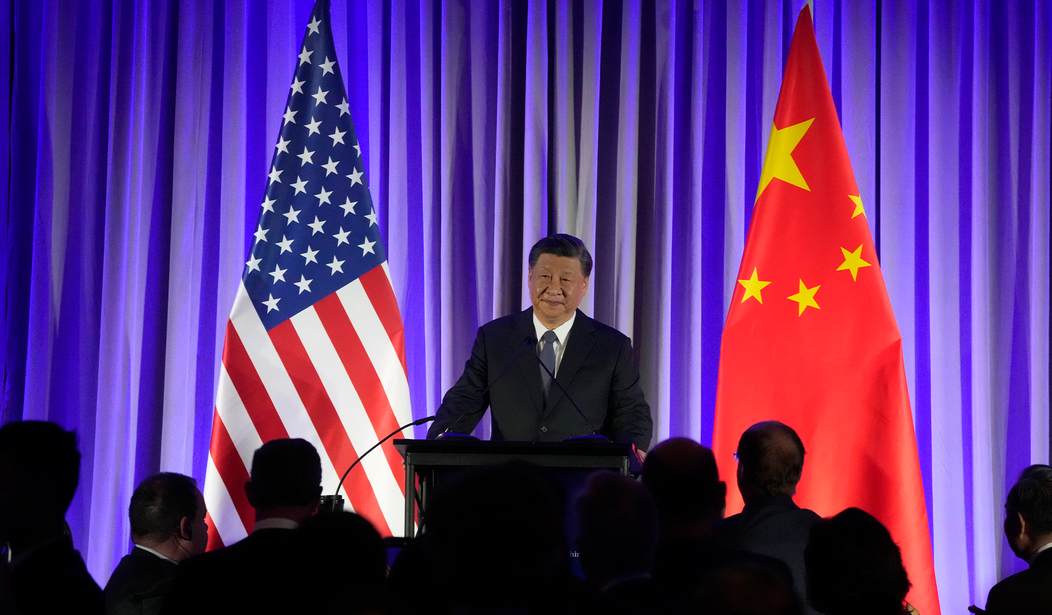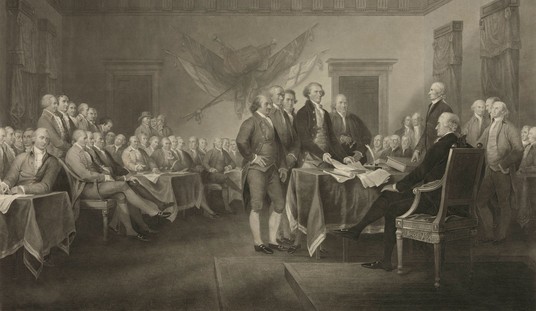So China slapped the U.S. with a 25–34% tariff on select imports, and the headlines screamed “retaliation!” But let’s be honest: if this is what Beijing thinks passes for strong economic diplomacy, then we’ve got even more proof that the Chinese Communist Party is playing checkers while the U.S. is mastering 4D chess.
The truth is simple: China’s move is frail, desperate, and ultimately doomed to backfire.
For starters, China needs us far more than we need them—a reality the media elite won’t say out loud but that every business leader worth their calculator knows. The United States is the hottest, wealthiest consumer market on the planet. We innovate, we buy, and we drive the world economy. When Americans sneeze, China catches the flu. And the CCP knows it.
So what exactly is Xi Jinping hoping to accomplish with this flaccid “counterattack”? Save face. That’s it. That’s the game. He’s trying to look strong in front of his people, his party, and perhaps the mirror. But like most things manufactured by the CCP—this tariff stunt is low quality, poorly assembled, and won’t last long under pressure.
Let’s break it down.
1. China’s Economic Dependence on the U.S.
While the White House under Trump has been pushing to untangle the mess of U.S.-China trade entanglements, Beijing is clinging for dear life. Their economy—already shaky from demographic decline, spiraling youth unemployment, and crumbling real estate giants—can’t afford a protracted spat with its biggest customer. U.S. consumers are a lifeline to China’s manufacturing sector. Losing us means losing jobs, stability, and, ultimately, the illusion that the Chinese economy is bulletproof. Spoiler: it’s not.
Recommended
Meanwhile, American companies are quickly finding alternative partners in India, Southeast Asia, and Latin America. We’re shifting our supply chains and cutting our losses. We’ll be fine. China? Not so much.
2. The Superiority of American Products
Here’s a fact that Xi fears more than anything: if Chinese citizens were given unfiltered access to American goods, the CCP couldn’t stop the revolt.
American products are just better. Period. More durable, more innovative, more reliable. While China has spent decades reverse-engineering and knocking off American designs, they’ve never replicated the ingenuity or trust we bring. They’ve stolen our blueprints but can’t copy our brilliance.
If China ever opened the floodgates to genuine free trade—real competition in its own markets—their people would choose American quality over state-sanctioned knockoffs every time. And that terrifies the party. Because when the people get a taste of real excellence, they ask uncomfortable questions about why they’ve been fed mediocrity for so long. That kind of curiosity is lethal for a regime built on control.
3. American Markets Still Rule
Despite the globalist doom-and-gloomers wringing their hands over “trade wars,” our economy continues to show strength. We’re not just the most significant market—we’re the most dynamic. Our tech, agriculture, and energy—American industries aren’t just surviving, they’re thriving. We create, build, and set the standard the rest of the world tries to catch up to.
So, while Beijing throws a temper tantrum with these hollow tariffs, we should recognize them for what they are: political theater. They want to bluff toughness while secretly hoping we don’t call it. But guess what? We should absolutely call it.
4. Freedom vs. Fear
This trade drama isn’t just about economics—it’s about philosophy.
America believes in free markets, competition, and the idea that the best ideas rise to the top. China believes in centralized control, censorship, and the fiction the party knows best.
If this were a battle of values, then the American model would win every time. But that win only happens if we stay strong, hold the line, and let the world see the contrast: freedom breeds excellence, authoritarianism breeds fear.
And make no mistake, fear is exactly what’s fueling China’s phony posturing right now.
Xi Jinping isn’t lashing out because he’s confident but because he’s cornered. His economy is vulnerable. His people are restless. His global reputation is battered from COVID coverups to Uyghur labor camps. The last thing he can afford is open access to Western products and ideas that show his people what they’re missing.
Final Thought: Cowardice in the CCP
The Chinese Communist Party is terrified of the truth.
They know that their citizens crave freedom, quality, and a future that doesn’t involve surveillance, censorship, and second-rate goods. That’s why they have to enforce tariffs, suppress dissent, and lock down the internet. They’re cowards pretending to be conquerors.
In the end, American excellence will win this tiff over tariffs—not because we fight dirty, but because we play fair and still dominate. The Chinese have to cheat their own people and protect their markets because they are afraid of the truth.
And the truth is this:
You only have to enforce your rule in your own markets… when you're too cowardly to compete in the real ones.

























Join the conversation as a VIP Member